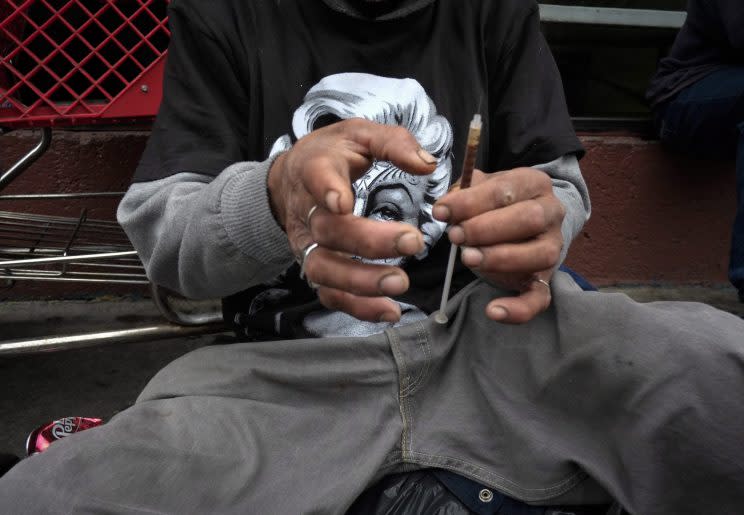City of Ottawa set to install needle-dispensing vending machines

Vending machines dispensing needles and crack pipes will be installed throughout Ottawa in the coming months as part of a pilot project aimed at reducing the transmission of HIV and Hepatitis C in designated spots throughout the city.
Dr. Vera Etches, Ottawa’s deputy medical office of health, says the initiative was launched after public consultations, which found that more resources were needed during off-hours for people who inject and smoke drugs. People who use needle-exchange services will receive a token, which they can use to access sterile drug supplies in the evening and weekends.
“We haven’t decided on the locations yet, but we’re looking at placing them where we know there is drug use and where people are seeking service after-hours,” she told Yahoo Canada News. “There are people who aren’t accessing services, so this is a way to reach those with the greatest needs.”
Up to five of the vending machines will be installed as part of the project, which is funded by Ontario Ministry of Health and Long-Term Care. Etches said the program could begin roll out by February. She added there’s currently no exact price tag, but it could be in the range of $25,000 in total for all the machines.
Countries like New Zealand, Australia, Germany and Italy have similar vending-machine programs.
Of the 2,000 people surveyed by public health about the project, 62 per cent were in favour. Research shows there are about 5,000 injection drug users in the region, with an HIV rate of 13 per cent and Hepatitis C rate of 70 per cent.
During the consultation process, which first started in 2013, Etches said community members raised concerns about the disposal of the dispensed products. To combat the danger, her team is hoping to pack the kits in a poke-proof container.
“So there’s a method of safe disposal right with the supplies,” she said.
A Vancouver non-profit runs a similar project throughout the city’s Downtown East Side, a neighbourhood notorious for its high population of drug users. Vending machines dispense clean crack pipes, as well as mouthpieces and screens, for .50 cents. It also decreases the value of pipes sold on the street, and the program employs drug users to assemble the kits, organizers said.
Coco Culbertson, a senior manager with the PHS Services Society, the organization providing the machines, said when the project was first introduced nearly a decade ago, there was “hyperbole” over concerns the machines would attract young people to start using.
“None of that is on the table anymore,” she said. “It died down within a few weeks.”


